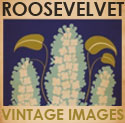fine reads: when winter comes
 Monday, November 19, 2012 at 7:00AM
Monday, November 19, 2012 at 7:00AM When Winter Comes, by Nancy Van Laan, illustrated by Susan Gaber, is a short and sweet read that answers questions like, "Where oh where do the leaves all go when winter comes and the cold winds blow?"
With calm, rhythmic text, this book manages to be at once informative and soothing. Classified as a title for "the very young," my almost three year old loved the somewhat muted, earth-toned acrylic-painted illustrations and the rhymes, and enjoyed being able to answer some of the posed questions himself.
Before cozying up in bed, a child (whose only real gender signifier is a very cute bob, though interestingly I can only find them referenced as 'he') explores the outdoors with two big people (one of whom looks rather female; the other is just an adult in winter clothes). They check out the icebound pond, wonder about where the flowers went, and eventually make their way back to the house, where the little one gets ready for sleep.
A perfect bedtime story for sensitive kids, this has no tension, just wintery imagery heavy on the beauty and wonder of the cold weather. When Winter Comes is relatable for anyone who lives in a snowy clime, but is equally appealing for those in warmer places who like a little seasonal vicarious living.
There's nothing didactic about the adults; I got the impression that they were -- as we were --along for the ride, being led by the child's questions about the nature that surrounds us. They seem fairly ambiguously-aged as well as gendered (in the case of the blue-coated grownup), and, because there's no mention of them by name or title, they could easily be two mamas, a mama and a papa, grandparents or any other combination of a vaguely feminine person and someone else. The clothing and surroundings don't speak to a time period, and so this story feels enduring despite having been written in 2000. Racial identitiy is similarly ambiguous; the family's dark hair and the child's olive complexion mean this story could come across as a depiction of many different ethnicities and a few different races, with some room for multiracial or multiethnic families to feel represented. I, of course, imagined a little Jewish girl, and started scheming about how to recreate that hat.
Ratings:
Kids' Gender Neutrality: *****
Five stars for an outdoors-exploring, nature-interested kid dressed in simple, non-gendered clothing, without a name, with no pronouns and only a bob-with-bangs to serve as a hint to their gender.
Family Situations: ****
Four stars for two companion adults, one of whom is probably female, not mentioned by name or pronoun but obviously loving and engaged.
Multiculturalism: **
Two stars for a family that is not necessarily white, but not obviously anything else.
Gentle Parenting: ***
Three stars for involved adults who take a backseat to the child, and for a story with no correction and no negativity but lots of clearly (if poetically) stated answers to questions my own toddler might ask.
Story and Illustration Quality: ****
Four stars for beautiful pictures and truly endearing, lilting text. For a picture book, maybe a little too spare, but if this were a board book it would get five stars, easily.
Our family's Overall Rating: ****
Four stars. George found it a "nice and quiet" exercise in rhyming, which he's loving lately, and especially liked the page about caterpillars. I appreciated the simplicity and warmth despite the snowy subject matter, and the inherent inclusiveness of a book with characters like these. When Winter Comes was enjoyable enough that I'll be looking for it to add to our permanent library here at home! Buy it at Powell's, or Amazon, or check it out at your local library.
 books,
books,  children's literature,
children's literature,  fine reads,
fine reads,  library,
library,  nancy van laan,
nancy van laan,  picture books,
picture books,  reading,
reading,  seasons,
seasons,  susan gaber,
susan gaber,  toddlers,
toddlers,  when winter comes,
when winter comes,  winter in
winter in  books
books 



